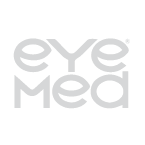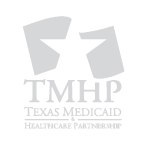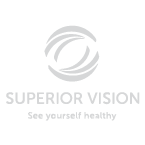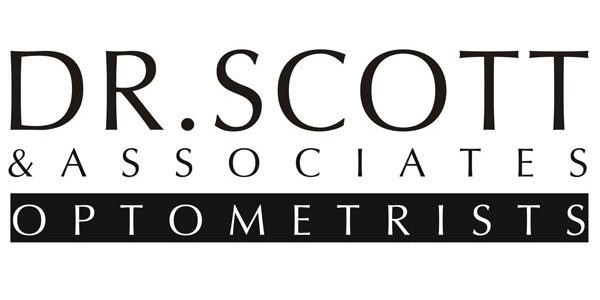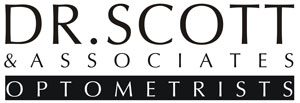

Yes, we accept walk-ins, but we strongly encourage you to make an appointment instead. All of our appointments are always seen first. If you are running late, please give us a call and we will accommodate you.
–When should I see your optometrists?
If you have never visited an optometrist before, know that vision that gradually gets poorer with age is normal and happens to many people. We understand that you probably have a million questions running through your head before your exam, especially if it is your first. You should visit our optometrists once a year, even if you believe your vision has not changed from your previous appointment. Annual exams can detect eye diseases, diabetes, and high blood pressure, too!
-What are some reasons for having my eyes examined?
- If you have blurry vision, poor night vision, double vision, have noticed flashes of light or spots in your vision, etc.
- If you have trouble judging distances or distinguishing between greens and reds (potential color blindness).
- If your vision prevents you from performing certain activities.
- Your prescription eyeglasses or contacts are no longer working for you.
- If you have sustained an injury* to your eye(s) due to an accident at home or work, while playing sports, while performing another physical activity, etc.
If you have sustained a serious eye injury, please seek medical attention immediately.
–What does an eye exam involve?
Eye exams typically involve a series of simple but comprehensive tests that allow us to determine your vision problems and eye health. We use many tools that help us pinpoint your prescription. It is all easy for you!
–Should I bring anything to my exam?
Bring your vision and medical insurance information to your exam. If you wear prescription eyeglasses, contact lenses, or prescription sunglasses, bring them as well. This way, we can determine your current prescription if you are a first-time visitor. If you wear contacts, be sure to bring your contact lens case and solution since we will probably ask you to remove them for the exam.
Feel free to include any medications (along with dosage and instructions), eye drops, or supplements you use as well as a list of your allergies (if you have any). Tell us who your primary doctor is and your family’s health history, such as history of eye disease. You can also write down a list of questions relating to your vision and exam. We will be happy to answer them!
-What should I ask my optometrist?
There are plenty of questions we will be happy to answer for you:
- How much has my vision changed since my last exam?
- Should I be doing anything different to keep my eyes healthy?
- What is the best way to treat my eye condition?
- Are there any vision issues I should keep in mind?
- Other than using my prescription, what can I do to improve my vision?
- Is laser vision correction an option for me?
- Which is better for me, contacts or prescription eyeglasses?
- How long can I wear my contacts each day?
- How can I prevent my prescription eyeglasses from scratching?
- How can I protect my vision while I am being physically active?
–How do I know if my child needs glasses?
Many children in need of glasses are unaware that they do! This is why it is best to bring them by our office for an exam. A few signs to look out for include sitting too close to the TV, squinting, trouble with hand-eye coordination, trouble with reading from long distances, etc.
–How does vision change with age?
Your vision can change in many ways as the years go by. This includes loss of peripheral vision, decreased color vision, a reduction in pupil size, dealing with dry eyes, vitreous detachment, glaucoma, cataracts, diabetic retinopathy, etc. The most common issue is presbyopia, which is the age-related loss of focusing ability. The great news is that many different lenses can help with presbyopia.
–Can anyone wear contact lenses?
Almost anyone in need of vision correction can wear contact lenses. Those with nearsightedness, farsightedness, astigmatism, or a combination of these can wear contact lenses. Finding the perfect lens, however, can be a challenge, but only with a scheduled exam will we find the right prescription for you!
–Which conditions can your optometrists treat?
Our optometrists can treat nearsightedness, farsightedness, and astigmatism. They can also help with dry eye syndrome, several eye infections, glaucoma, and other eye diseases.
–How will your optometrists test my eyes?
Our optometrists use several tools and tests to evaluate and measure your eye health and vision. Our eye exams usually involve a glaucoma test, a visual field screening, an extraocular muscle test, a retinal screening, and a refraction test.
–What is a refraction test?
Refraction tests pinpoint your prescription. We do this by showing you a series of lens choices through a device called a phoropter. Then we determine the level of your nearsightedness, farsightedness, and/or astigmatism.
–Is a contact lens exam different from a regular eye exam?
With a regular eye exam, our optometrists can determine if your eyes are healthy enough for contact lenses. During a contact lens fitting, our optometrists will take detailed measurements of your eyes to create the perfect fit. Know that there is an additional fee for a contact lens fitting and evaluation.
–What should I expect during my visit?
During your appointment, our optometrists will check your eyes’ health and vision. Afterward, they will discuss what they have found and what your prescription is. Our optometrists can also answer any questions about your eye health, prescription, eyeglasses, contact lenses, sunglasses, and more!
–What is the difference between an eye exam and vision screening?
A comprehensive eye exam involves our optometrists spotting vision problems, your eyes’ health, and overall general health as well. On the other hand, a vision screening is performed by a general medical practitioner like a nurse or pediatrician. Vision screenings help identify vision issues but can miss important concerns that an eye exam can identify. This is why it is important to have annual eye exams.
–How is vision measured?
Vision can be measured with a series of tests through an eye exam. For example, visual acuity is measured with two numbers, one representing the distance from which you can clearly see and another number representing the distance from which a person with normal vision can see the same thing. This measurement is obtained during an eye exam by having you read a chart of letters of different sizes.
–Can eye exams detect other health issues?
Yes, eye exams can detect other health issues like glaucoma and cataracts. They can also detect general health issues such as high blood pressure, heart disease, and diabetes! This is why it is so important to have annual checkups.
-Should I bring someone with me to my eye exam?
If you are a parent, then we absolutely invite you to join your child with their exam. If you are an adult, we sometimes use eye drops to dilate our patients’ eyes during exams. If we do this, your vision can be affected for up to a few hours and it may be unsafe for you to drive. Be sure to have a ride available to take you home.
Payment Types:




Some Insurances We Accept:
